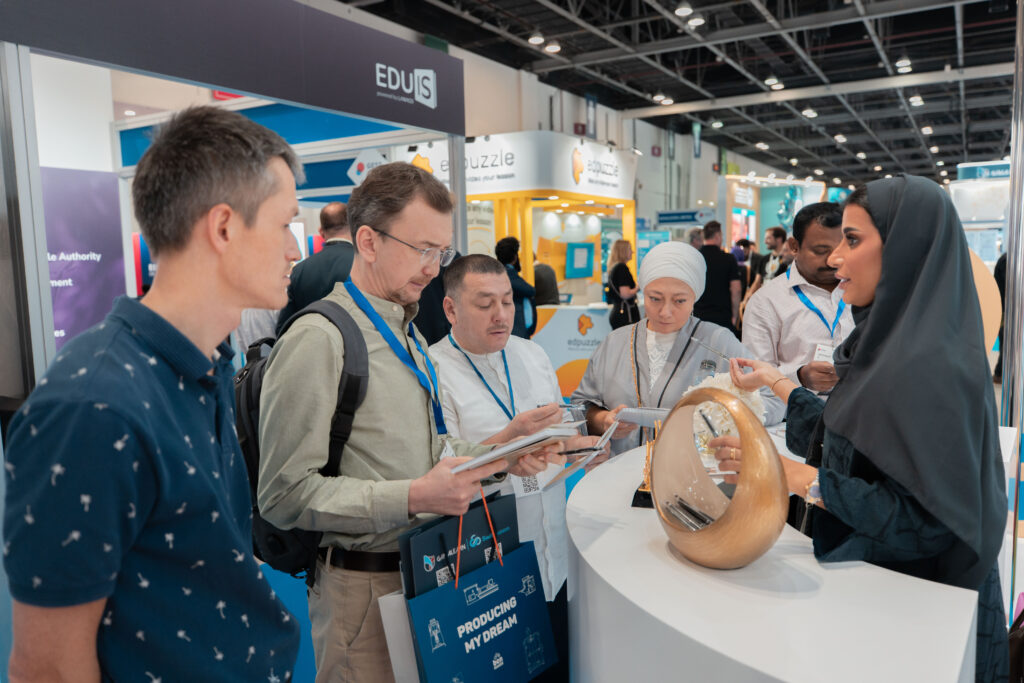During its participation in the GESS Dubai 2024 exhibition
“Khalifa Award” Highlights Global Leading Practices in Early Childhood Care
Amal Al-Afeefi:
The exhibition represents a bridge for communication with the educational field locally, regionally, and internationally.
The award reviews the ethical considerations of artificial intelligence and early childhood in a panel discussion.
Abu Dhabi: Wednesday, November 13, 2024
The General Secretariat of the Khalifa Award for Education participated in the Global Educational Supplies and Solutions Exhibition (GESS) in the Middle East, held in Dubai in 2024. The award presented a comprehensive overview of its mission, objectives, and the categories for its 18th cycle (2024-2025) at its booth at the Dubai World Trade Center, highlighting the award’s focus on monitoring the impact of artificial intelligence and virtual reality on the quality of education locally, regionally, and internationally.
Amal Al-Afeefi, the Secretary-General of the Khalifa Award for Education, emphasized the standing of this participation, which allows the Award to engage with participating entities, including local and international educational institutions, as well as educational and academic leaders, students, and parents. The exhibition serves as a platform for showcasing the most prominent scientific and technological solutions aimed at developing the learning environment, especially in the fields of video game design, game-based learning, and esports, all of which have the potential to develop interactive and blended learning programs, as well as other modern educational methods.
Al-Afeefi said: “The Khalifa Award for Education is keen on documenting its cooperation with various entities related to the educational field, including this exhibition, which attracts around 8,000 specialists from 74 countries worldwide to showcase the best educational practices, applications, and innovative solutions in the education sector.”
The Secretary -General pointed out that the Award organized a panel discussion titled “Artificial Intelligence and Early Childhood: Ethical Considerations and Implications for Future Directions”, presented by Dr. Jana Fleming, a member of the Khalifa International Early Learning field’s awarding committee and Director of Early Childhood Development at the Salama bint Hamdan Al Nahyan Foundation, and Zelda Malik-Janovich, Co-Chair of the AI Generation at the University of Oxford and Co-Founder of Fam. During the session, they discussed AI systems and their implementation in early childhood learning environments, the growing use of devices and applications by young children, their parents, caregivers, and teachers. While AI ethics have evolved, leading to a growing consensus on establishing high-level ethical principles for the use of AI, there remains limited academic review regarding the interaction between children’s issues and responsible AI, particularly in the field of early childhood.
Al-Afeefi further added: “The session discussed several scientific issues related to AI ethics research concerning early childhood development, and how these principles are integrated into practical applications. The presenters shared best practices followed by prestigious institutions worldwide in early childhood education within an ethical framework that guides how teachers, parents, and students should interact. The session emphasized the importance of supporting a value system that empowers these mechanisms, enabling the child to grow and excel in acquiring knowledge, developing their personality, expanding their horizons, and opening doors for future engagement.”
